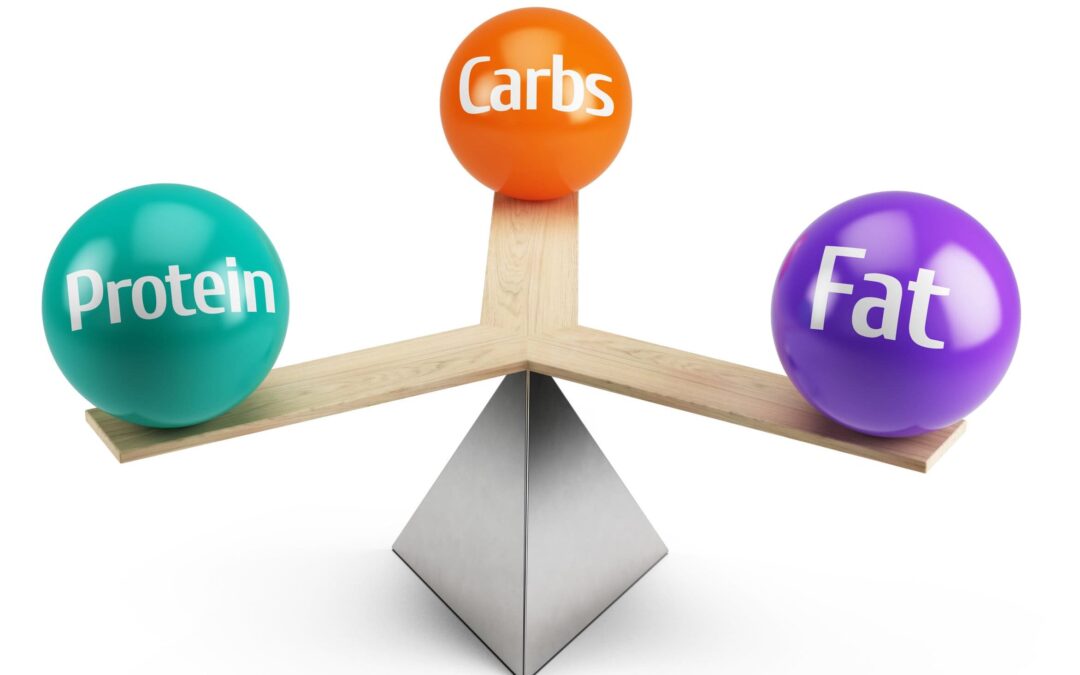Achieving optimal health and successful weight management goes beyond merely counting calories. Understanding macronutrients—proteins, carbohydrates, and fats—is crucial for creating a balanced diet that fuels your body, supports bodily functions, and promotes overall wellness. This blog explores the importance of each macronutrient and how they contribute to your health.
Proteins: Proteins are the building blocks of your body. They play a vital role in repairing tissues, producing enzymes and hormones, and supporting immune function. Here’s why proteins are essential:
- Muscle Repair and Growth: Proteins help repair and build muscle tissues, making them crucial for recovery after
- Metabolism Booster: Protein-rich foods can increase your metabolism by requiring more energy to digest, known as the thermic effect of
- Satiety: Proteins are highly satiating, helping you feel full longer and reducing overall calorie intake.
Sources of Healthy Proteins:
- Lean meats (chicken, turkey)
- Fish and seafood
- Eggs
- Dairy products (Greek yogurt, cottage cheese)
- Plant-based options (beans, lentils, tofu, quinoa)
Carbohydrates: Carbohydrates are the body’s primary energy source. They are essential for fueling physical activity and proper brain function. Here’s why carbs matter:
- Energy Production: Carbs are broken down into glucose, which provides energy for your body and brain.
- Fiber: Many carbohydrate-rich foods are also high in fiber, which aids digestion, supports heart health, and helps maintain stable blood sugar levels.
- Nutrient Delivery: Carbs are often found in nutrient-dense foods like fruits, vegetables, and whole grains, providing essential vitamins and minerals.
Sources of Healthy Carbohydrates:
- Whole grains (brown rice, oats, whole wheat bread)
- Fruits (berries, apples, bananas)
- Vegetables (leafy greens, sweet potatoes, carrots)
- Legumes (beans, lentils, chickpeas)
Fats: Fats are essential for various bodily functions, including hormone production, brain health, and nutrient absorption. Here’s why fats are vital:
- Energy Storage: Fats provide a concentrated energy source, especially important during prolonged physical
- Cell Function: Fats are integral components of cell membranes, helping
Maintain their structure and function.
- Nutrient Absorption: Certain vitamins (A, D, E, K) are fat-soluble, meaning they require fats for absorption and transportation in the
Sources of Healthy Fats:
- Monounsaturated fats (olive oil, avocados, nuts)
- Polyunsaturated fats (fatty fish, flaxseeds, walnuts)
- Omega-3 fatty acids (salmon, chia seeds, hemp seeds)
Balancing Macronutrients: Creating a balanced diet involves consuming the right proportions of macronutrients to meet your individual needs. Here are some tips:
- Personalised Approach: Your macronutrient needs vary based on factors such as age, gender, activity level, and health Consider consulting with a healthcare professional or nutritionist to tailor your diet.
- Balanced Meals: Aim to include a source of protein, carbohydrates, and healthy fats in each meal to ensure balanced nutrition and sustained energy levels.
- Quality Over Quantity: Focus on the quality of your macronutrient Opt for whole, minimally processed foods that provide essential nutrients and support overall health.
Understanding the role of macronutrients is fundamental for achieving balanced nutrition and optimal health. By incorporating a variety of proteins, carbohydrates, and fats into your diet, you can support your body’s functions, enhance your well-being, and work towards your health and fitness goals. Remember, balance and quality are key to a healthy, sustainable diet.

